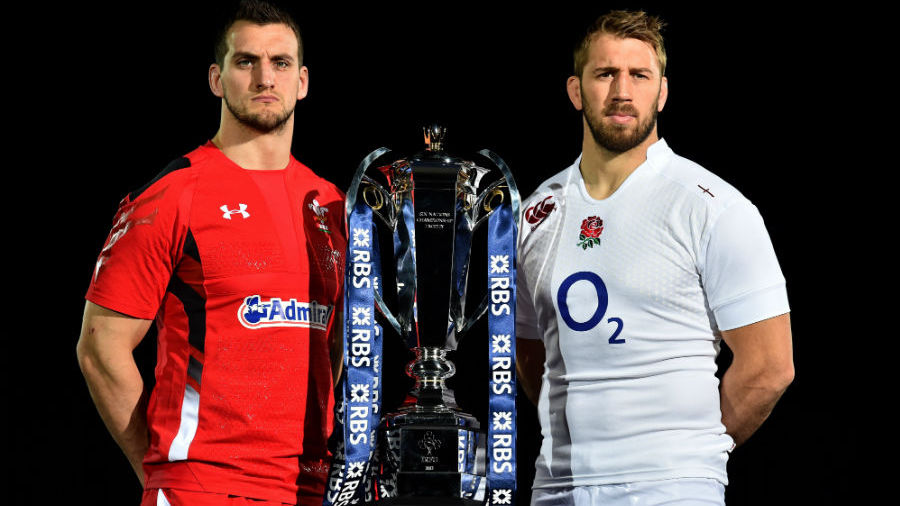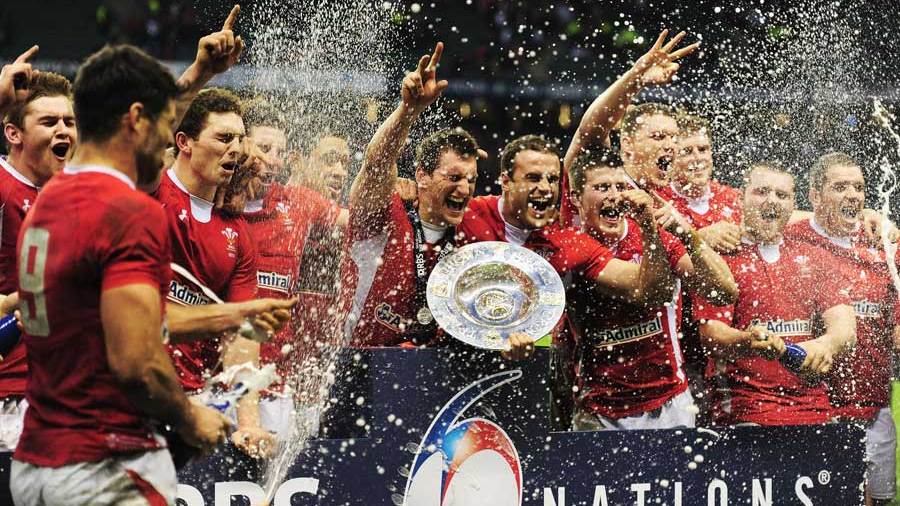- Six Nations
Six Nations: England's arrogance sparks spiky parochialism
Simon BarnesFebruary 6, 2015
This is World Cup year for rugby union. So naturally a good few old-school types regret the fact that the Six Nations tournament is widely seen as nothing more than a warm-up tournament: a process of sorting out selection issues before the year gets serious on us.
Yeah right.
There are three Kiwi head coaches involved in this year's tournament. Ask them if it's just a prep tournament and they'd hold their heads in their hands and groan: I wish! It kicks off on Friday with Wales hosting England. And, with the passion the tournament provokes, the first five minutes of the first match will have more intensity than the entirety of the England football's team qualifying campaign for the European Championship of 2016.
Much of that comes from the crowds, caught up not in the pursuit of modern sporting excellence but in the atavistic rivalries between nations that have known centuries of conflict. The recapitulation of these enmities in times of peace releases feelings that can't really be expressed away from sport.
England are at the heart of it, or so it always seems. England are surrounded by ancient and traditional enemies: two nations to the west, one to the north, two more to the south. And for each of the non-English nations involved beating England tends to offer more satisfaction than other victories.
At least, that's the way the English see it. Other nations see that sentiment as classic English arrogance - so arrogant they don't even care if they beat us.
But England is the only northern hemisphere country to have won the World Cup, and there must be a reason for that. There are rugby nations that can lose in the quarter-finals of the World Cup and their fans count the year as a success if they beat England.
If Joe Schmidt, Kiwi coach of Ireland, and Warren Gatland, Kiwi coach of Wales, can convince their charges that beating England will only get you so far, they will have revolutionised international rugby. Vern Cotter, Kiwi coach of Scotland, has other things on his mind: like beating Italy, like wooden-spoon avoidance.
Of course, there are sporting and historical satisfactions to be found in most of the other matches in the tournament as well, but the England matches always have a certain edge. That is especially so for supporters. Ask around in Cardiff: what would give most satisfaction - beating England in the Six Nations and dumping them out of the World Cup at the group stage, or winning the World Cup?
The intensity of the Six Nations encourages this kind of spiky parochialism. The long shared history has taken in wars and atrocities as well as sporting rivalries, and these things are not lightly forgotten. When the Eurostar first opened, French travellers from Paris would find themselves arriving at a station called Waterloo.
This lust for beating England makes for riveting sporting spectacles every year, but it's not very grown up. On the pitch, modern sport is about professionalism: the pursuit of excellence, trying to be the very best you can and sparing nothing of yourself whatsoever in the process, but the paying public off it has a different agenda.

So the real aim for the non-English sides in northern hemisphere rugby this year is not to beat England. It's to beat England without getting too excited: a realisation that beating England is not an end in itself.
France have mostly got there, even if beating les rosbifs will always have a certain zing. Their struggle, as rivals see it, is to avoid crude self-caricature: to come to a tournament - any tournament - with something more than flair and internal squabbles.
The most enjoyable match I ever saw in my life was France beating New Zealand in the World Cup semi-finals of 1999: it'd be a fine thing to see a hot French side emerge from the Six Nations as real contenders.
All Ireland lack as global contenders is the right self-image. The England fixation has diminished greatly in recent years, especially after that match of vast significance in 2007. That was when Ireland played England at Croke Park, scene of the Bloody Sunday massacre of 1920. Afterwards I overheard one of the spectators saying: "And that's the end of 900 years of shite."
Ireland could do it: win the Six Nations and go into the World Cup as a serious threat to every team they come up against. And being English I naturally seize every opportunity to become a self-elected Irishman.
Of all nations' fans, Wales' have found it hardest to see England as a mere stopping-point on the road to greatness. I know what it's like to stand on Cardiff station after a Welsh victory, the place echoing with "We shall not be ruled" as sixth-pint subversiveness dominates hearts and minds.
Gatland's constant challenge is to get everyone beyond that. Certainly his players claim that such sentiments belong in the wheelie-bin of history - but that won't be reflected in the crowd at the Millennium Stadium on Friday night.
Perhaps that's why the Welsh record at the World Cup is so woeful for a serious rugby nation: two semi-finals, two quarter-final exits and three pool-stage exits. If Wales can produce a real 21st century rugby team that sees itself as something more than plucky underdogs and would-be conquerors of England, they might get somewhere. Their challenge is to establish a new mindset in the course of the Six Nations.
As for England, there is one very clear lesson, and it's one for the administrators, rather than the coach, Stuart Lancaster. If you establish a system under which players hammer themselves to bits in endless club matches, you're creating an unworkable situation for international sport. England will have to go some to put up a respectable performance in the Six Nations; their preparation for the World Cup is already a mess.
So I have a fancy for Ireland, who have France and England at home, with Wales in Cardiff as the tricky one. And then perhaps a serious tilt at the World Cup to follow? It would be a great ride.

© ESPN Sports Media Ltd
Writer Bio
Recent Posts
- Football: Evans-Cisse spitting spat exposes football's glaring flaws
- Rugby Union: Joseph is the devil England have been craving
- Football: Beware the Dead Cat Bounce at Aston Villa
- Rugby Union: Rugby's big beast problem is spiralling out of control
- Football: Celebrating Harry Kane's rare talent - the art of goalscoring

